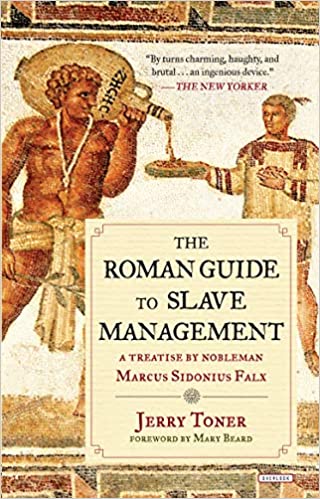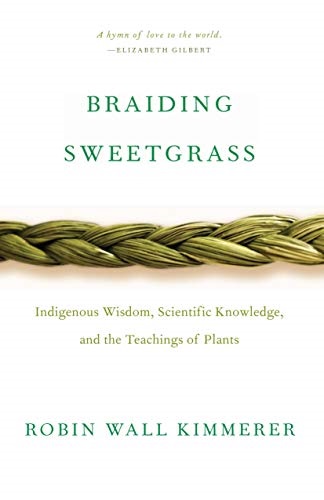Recently I read a book whose cover I wanted to hide when I was on the subway or bus:

It was actually a fast and interesting read but often a horrifying one due to the subject matter – how to be a Roman slave master. Written by a modern day professor, Jerry Toner, it takes on the ‘voice’ of a Roman slave owner as author. Each chapter offers the view of slave owner Marcus Sidonius Falx on a particular aspect of slave ownership such as punishment or manumission. Falx is of course a fictional character based on Toner’s research. After each chapter there’s a brief commentary section where the professor addresses the original Roman sources he has relied on and spends a lot of care making sure the readers don’t think the Romans were anything like us.
Though I am relatively well versed in Roman history and society, I found it quite a deep dive into the patrician class and their snobby views of their own superiority, obviously as pertaining to their perceived social inferiors. I can’t help but come to the conclusion that Romans were nasty people. I don’t know if Toner set out to generalize about slave owners or felt that by crafting such a hypocritical and callous character as Falx he would attract more readers.
Falx considers himself a kind and generous owner for his positive relations with his slaves (including fathering many children out of such relations), his generosity to those who have served him well, his fair punishments for those who trespass against him and his property, and his genius theories of what motivates slaves to work harder. He is aware of the problems of slavery in the empire (the book is set before Rome’s long downfall really began) in that he admits that Romans have become too dependent on slavery. However, he makes it more than clear that he’s unwilling to do anything he finds beneath him as a member of a ‘chosen’ class.
One subtext that I picked up while reading is just how litigious the Romans were. Many cases relating to slavery ended up in the law courts. This, to me, says both good and bad things about the Romans. They had laws to guide them in their social relations; however, those laws were never about being good or bad.
By HUGE contrast, my next book is a gentle and calm tract on people and nature. I feel no need to hide it when I’m on the subway. In fact I finished it on the Bathurst streetcar and was looking for someone to discuss it with.

Forgive me if it’s naïve to ask, “where has this book been all my life?” I find it very calming. The author is an Indigenous American woman from the Citizen Potawatomi Nation, a biology professor, and a lifelong student of the relationship between humans and nature. I like that she has a teacher voice but one that also recognizes there’s always more to learn.
While I love the material, possibly because I’m a vegan, I am absolutely mesmerized by Robin Wall Kimmerer’s writing style: descriptive in an earthy way. Not frilly. Not pious. Not sanctimonious. Calm and easy going.
The book’s main argument is that our relationship with nature must be reciprocal in order to help both us and the planet survive. We have to give, not just take.
As a history teacher, I know that we cannot judge the people of the past for acting within the norms of their own societies. But there were always dissenters and voices (though not loud or powerful enough at the time) who make it impossible for us to say that things could not have been different. I often think back to England in the late 1700s when industrialization was getting started. While no one could have foreseen the damage that would be done to our climate, there surely were those who saw the new way of life as being anti-nature. Robin Wall Kimmerer asks us to listen to those voices in our society. People who think there is another way. Really she’s asking us to listen to nature.
It may be surprising that this vegan found the chapter on the trapper quite interesting. Morally I am squeamish about hunting, trapping, even fishing. But if it’s for sustenance and done in as humane a way as possible, I accept it as part of the relationship Indigenous people have with the environment. Sport hunting? Absolutely not. Fishing so buddies can drink some beer (as I often see on Rice Lake), not in my book.
The book is probably not going to make me change my lifestyle further. However, it makes me more thoughtful about nature and how young people could learn to interact with it. Perhaps along with the land acknowledgement that we recite every morning we should take to heart parts of the Honorable Harvest:
“Harvest in a way that minimizes harm.” …
“Sustain the ones who sustain you and the earth will last forever.”
No coincidence here … I just watched “My Octopus Teacher” on Netflix. I was already pre-disposed to love this species after watching PBS’s Nature: Octopus – Making Contact. I’m not going to go out and seek to meet an octopus, nor do I think the Octopus trusted the man (Craig Foster). They were just curious about each other and that, in my books, is just fine, if no harm was done.